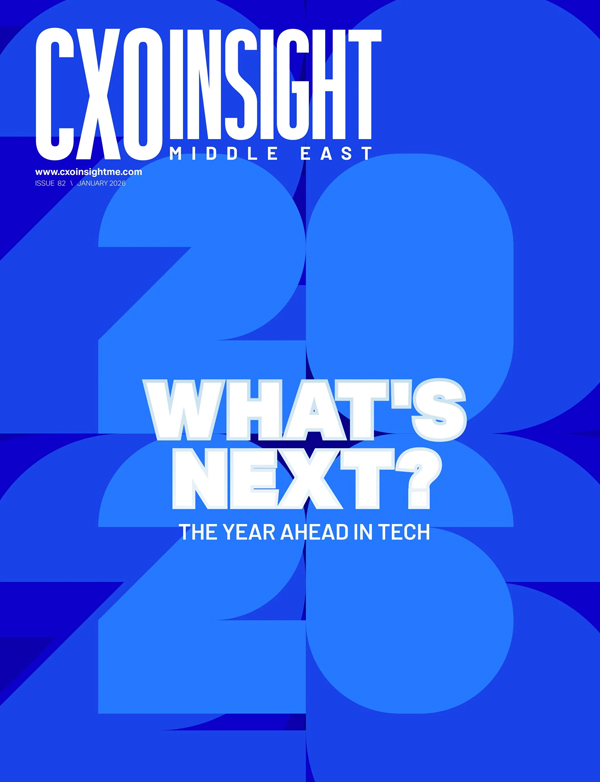Governments and businesses worldwide are racing to integrate AI into their core operations, unlocking efficiency and competitive advantage. In the Middle East, the UAE stands at the forefront of AI-driven transformation—initiatives like Smart Dubai aim to cut transportation costs by 44 per cent and construct 25 per cent of new buildings using 3D printing by 2030. Source. Yet, AI’s rapid expansion brings profound ethical dilemmas. Should businesses prioritise ethical AI use over efficiency? Who is accountable for AI-driven mistakes? What happens when AI challenges human values? These are no longer theoretical concerns but pressing leadership imperatives. As AI becomes embedded in critical decision-making, the question is not just “Can we implement AI?” but rather, “Should we?”

Reframing the narrative: Ethics vs. efficiency is a false dichotomy
Traditionally, business leaders viewed ethics and efficiency as opposing forces; AI exposes the fallacy of this assumption. Responsible AI adoption does not slow down progress—it ensures long-term sustainability and trust. A growing body of research supports this; 74 per cent of surveyed companies paused AI projects in the past year due to ethical risks. Source. The evidence is clear: Ethical AI is not just about compliance but also about protecting brand value, mitigating litigation risks, and strengthening customer trust.
Some companies are already proving that responsible AI fosters business success. Accenture’s AI fairness initiatives promote algorithmic transparency while maintaining operational efficiency. Aerobotics, a South African agri-tech firm, leverages AI for precision farming, optimising yields without compromising sustainability. Meanwhile, UAE-based Majid Al Futtaim (MAF) enhances customer experiences through AI-powered personalisation without sacrificing data privacy.
Conversely, businesses that prioritise short-term AI efficiency over ethics risk severe consequences. In the Middle East, gaps in AI governance have led to inefficient deployments, forcing regulatory interventions. Financial institutions in the GCC have reported costly and error-prone AI implementations due to poor strategic planning. Source. The takeaway is clear: Ethical AI is not a limitation—it is a competitive advantage.
Leadership accountability in the age of AI
The rise of AI necessitates a fundamental shift in leadership responsibility. Fiduciary duty no longer applies solely to financial performance; it extends to overseeing AI’s ethical and operational boundaries. Transparency and explainability must be embedded into AI oversight frameworks to ensure accountability.
Several Middle Eastern enterprises have demonstrated how responsible AI implementation leads to success. Saudi Aramco, for instance, has leveraged AI to enhance predictive maintenance and optimise oil extraction, reducing costs and improving operational efficiency. Source. Similarly, Saudi Arabia-based Anya utilised AI-driven analytics to refine logistics operations, significantly reducing delivery times while maintaining ethical AI governance. Source.
However, AI failures underscore the consequences of poor oversight. The ambitious NEOM smart city project in Saudi Arabia faced backlash over human rights concerns and data privacy issues, revealing gaps in AI governance and public accountability. Source. Additionally, a study by Rackspace Technology found that many UAE businesses struggle with AI implementation due to a significant knowledge gap, leading to costly errors and inefficiencies. Source.
The lesson is clear—without robust governance structures and ethical AI frameworks, organisations risk inefficiencies, reputational damage, and regulatory scrutiny. Source. AI success depends not just on technological capability but on leadership’s ability to balance innovation with responsibility.
Leaders must also consider the human cost of AI failures. An algorithmic decision can mean the difference between granting a loan or denying one, diagnosing a disease correctly or missing it, hiring a candidate or reinforcing systemic biases. Ethical AI is not just about mitigating risks; it is about safeguarding human lives and livelihoods.
Navigating the human-AI value interface
AI is designed for optimisation—maximising efficiency, speed, and precision. However, when machine-driven decisions conflict with fundamental human values like fairness, privacy, and autonomy, ethical dilemmas emerge.
Take healthcare for instance; AI can enhance diagnostic accuracy and treatment recommendations, but at what cost? If an AI model prioritises efficiency over patient autonomy, who decides the best course of action—the machine or the human? Similarly, AI-driven hiring tools promise faster recruitment but can inadvertently perpetuate biases. In financial services, AI-driven innovation often clashes with the need for stringent data privacy protections.
Consider Amazon’s AI-driven hiring tool, intended to streamline recruitment by ranking job applicants. However, the algorithm systematically downgraded female candidates due to historical hiring biases embedded in the training data. Despite Amazon’s attempts to correct the model, the system continued to favour male candidates, leading the company to scrap the project entirely. Source. This case underscores how AI can amplify existing inequalities if ethical safeguards are not in place.
Conversely, companies like Google have proactively addressed AI ethics by adopting a structured governance approach. In 2018, Google introduced its AI Principles, emphasising safety, accountability, and fairness. To operationalise these principles, the company implemented internal ethics reviews, technical audits, and training programmes to mitigate bias. Source.
The contrast between these cases highlights a critical reality: AI does not inherently possess ethical reasoning. The burden falls on leadership to embed human-centric values into AI systems. Without proactive oversight, AI risks entrenching biases rather than eliminating them. Ethical AI is not an afterthought—it is a prerequisite for sustainable success.
Strategic recommendations for leaders
To bridge the gap between AI innovation and ethical responsibility, organisations must adopt structured governance frameworks that ensure transparency, accountability, and fairness. Several established models can guide businesses in embedding ethics into AI operations. The OECD AI Principles emphasise human-centric values, transparency, and robustness, serving as a foundational guideline for responsible AI governance. The EU’s AI Act, a pioneering regulatory framework, categorises AI systems based on risk levels and mandates stricter oversight for high-risk applications, reinforcing the importance of risk assessment and mitigation. Meanwhile, the NIST AI Risk Management Framework (USA) provides organisations with practical guidelines to identify, assess, and manage AI-related risks, promoting trustworthiness and resilience in AI systems.
Immediate Actions:
- Establish AI ethics committees with decision-making authority.
- Implement AI audit frameworks to ensure transparency and accountability.
- Develop clear accountability chains for AI-related decisions.
- Engage stakeholders—including regulators, employees, and customers—to integrate diverse perspectives into AI governance.
Long-Term Considerations:
- Embed ethical AI principles into corporate mission statements and operational culture.
- Build AI ethics expertise within leadership teams to navigate evolving regulatory landscapes.
- Foster AI-driven innovation that prioritises sustainable value creation over short-term efficiency gains.
The leadership imperative
AI is not just a technological revolution; it is a leadership challenge. The future of business depends on leaders who can harmonise innovation with conscience, efficiency with ethics, and machine intelligence with human values. Those who master this balance will not only shape their organisations’ success but will define the next era of corporate leadership.
The responsibility does not lie with regulators alone; it rests with the visionaries steering businesses into the AI-driven future. Ethical AI is both a moral obligation and a strategic differentiator. Companies that embrace this reality will not only future-proof their operations but will also lead with integrity in the machine age. Synarchy Consulting believes that AI leadership is not just about technological mastery—it is about ethical stewardship that drives meaningful and sustainable progress. If your organisation were audited today for AI ethics compliance, would it pass?”










Discussion about this post